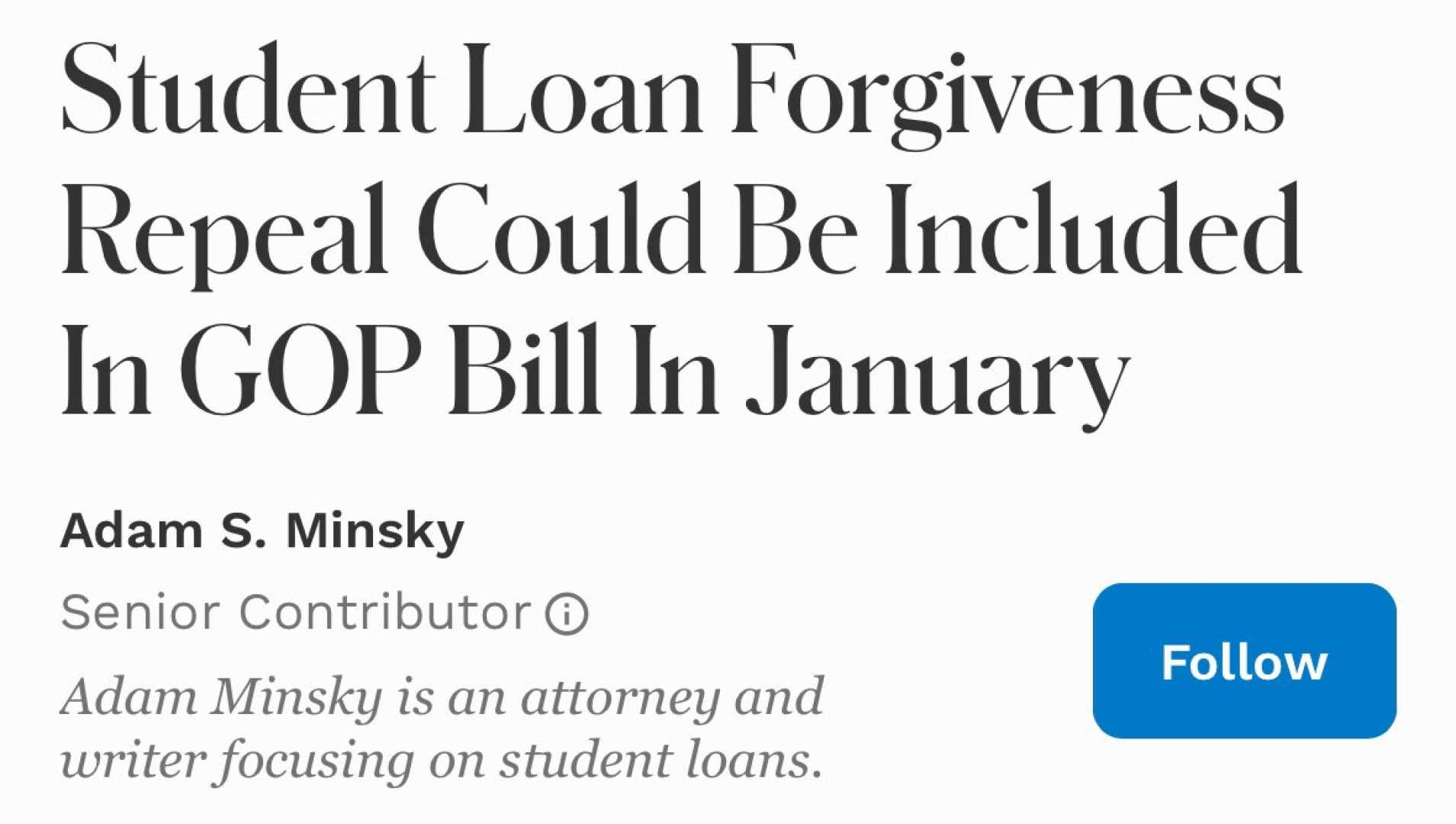Business
GOP Bill May Endanger Student Loan Forgiveness for Millions

WASHINGTON, D.C. — A provision in the GOP‘s proposed 2025 legislation could significantly jeopardize student loan forgiveness for millions of Americans, particularly those participating in the Public Service Loan Forgiveness (PSLF) program. The bill empowers the Treasury Secretary to revoke the nonprofit status of organizations deemed to support terrorism, which could impact the 12.8 million workers employed by nonprofits across the country.
The PSLF program allows borrowers who work full-time for qualifying employers, usually government or 501(c)(3) nonprofits, to have their federal student loans forgiven after ten years of income-driven repayments. However, if a nonprofit loses its 501(c)(3) status, employees may lose their PSLF eligibility unexpectedly, even after years in the program.
Critics of the GOP bill argue that it could lead to politically-motivated designations of nonprofit organizations, putting millions of borrowers at risk of losing the forgiveness they have diligently worked towards. According to 2022 data from the U.S. Bureau of Labor Statistics, over 10% of the private workforce in the U.S. is involved in nonprofit jobs, many in critical sectors such as healthcare and education.
Potentially, about 9.6 million nonprofit employees are in PSLF-eligible positions. Estimates show approximately 3.6 million individuals are currently eligible for PSLF based on their public service roles, but this number could diminish dramatically if the proposed bill passes. An estimated 6 million nonprofit workers carry student loan debt, according to a TIAA survey.
Former President Donald Trump has criticized nonprofit organizations, declaring intentions to revoke tax-exempt statuses based on claims of supporting terrorism without judicial review or a thorough investigation. Nonprofits such as Harvard, which employs over 18,000 in Massachusetts, could be notably affected.
President Biden’s administration previously indicated a commitment to protect PSLF, but the GOP’s move shifts the responsibility to the Treasury, raising concerns about potential misuse of power. Advocacy groups warn that the bill could encourage nonprofits to self-censor to avoid losing tax-exempt status, disrupting essential services in health, education, and social justice.
As the legislative process unfolds, the future of student loan forgiveness hangs in the balance for approximately 6 million borrowers who could suddenly find their pathways to financial stability obstructed.












